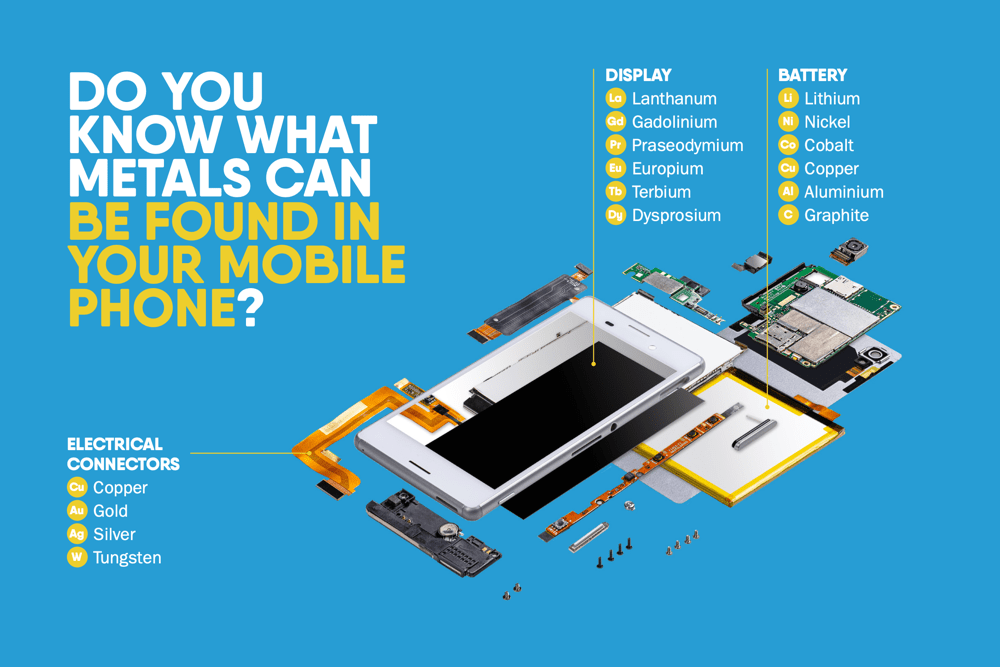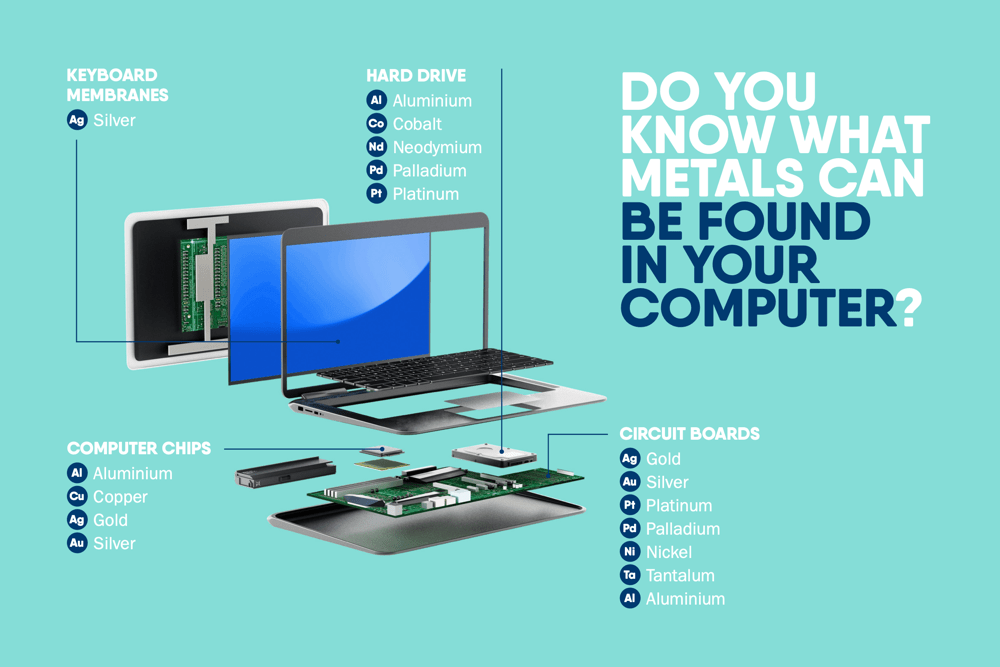CHOOSE
A DIFFERENT TERRITORY

Open up many of the electronic devices we now use on a daily basis and it is likely you will find small amounts of silver, platinum or other precious metals.
As demand for these materials grows, manufacturers face a choice: source virgin metals from nature-depleting mines or look to find a secure supply within the ‘urban mine’ of the UK waste stream.
With its environmental and cost benefits, the urban mine is increasingly the path chosen by the electronics industry and it is therefore vital these metals don’t get lost when processing waste electrical and electronic equipment (WEEE).
“Recovering precious metals from our electronics recycling business has become one of EMR’s biggest priorities in recent years,”
according to EMR’s Director for Non-Ferrous, Terry Garry.
As one of the world’s leading metal recyclers, EMR is therefore investing in new ways to remove these precious metals from its wider recycling processes, thereby ensuring they remain in the circular economy.
“The way that we process WEEE products is first by shredding them down into smaller pieces. The smallest fraction is most likely to contain precious metals and that will then go to copper smelters who can extract the precious metals through an electrolysis process.”
As the copper smelters achieve their goal of producing a cathode of pure copper, precious metals emerge, which then go on for further electro-refining to separate, clean and densify each metal present.

In recent years, changes to the law have made electronics producers and retailers responsible for taking back WEEE products, which is why firms such as Currys now encourage shoppers to return old printers, computers and other devices for recycling.
Terry says that consumers also have an important role to play:
“As with all recycling, consumers can ensure the process is effective by correctly segregating material and being responsible in how they dispose of their electronics.”
Education and support for consumers to do this must also improve, he adds.
For EMR’s part, significant investment in its recycling processes are likely to transform the efficiency and effectiveness of WEEE recycling, ensuring more of these precious metals are captured, processed and re-used in the next generation of electronics.
“Our investment in this area is two-fold. Firstly, we’re providing collecting and logistic services for retailers and manufactures who are now obliged to accept these end-of-life electronics to ensure they don’t end up in landfill or incinerators.
“At our recycling facilities, meanwhile, we’re looking at integrating sophisticated sorting technologies to improve the separation of our non-ferrous materials. This will be a big investment for the company in the coming years, but the goal – capturing these valuable metals and putting them back in the supply chain – will be more than worth it.”
While recycling these metals is inherently more sustainable than extracting them from the earth via mining, EMR is also transitioning to renewable power and electrified material handlers to cut fossil fuels from its operations. As part of EMR’s sustainability strategy, it also has a science-backed target to reach net-zero by 2040 which will further increase the environmental benefits of recycling WEEE products.
“While precious metals have been sought-after for millennia, their use in electronics means that demand for silver, palladium and platinum has never been higher. At EMR, we’re doing everything we can to create an efficient, sustainable supply chain of low carbon precious metals for the future,”
Terry adds.